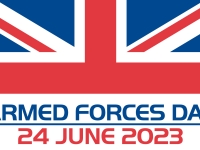Why should I use a solicitor to make an AFCS claim?
The Armed Forces Compensation Scheme (AFCS) is contained in legislation that runs to 100 pages. It is written in legal terms and whilst you will find some guidance on the government and other websites, having thorough knowledge of the legal rules and regulations is key to ensuring that the correct level of compensation is awarded.
The eligibility criteria, lump sum calculations, Guaranteed Income Payments (GIP) and other financial benefits payable under the scheme are all quite complicated and as an affected individual applying for compensation, it can be difficult to work out whether the correct level of compensation has been awarded. Your solicitor will also ensure that the correct medical and other evidence is reviewed by the decision maker to make sure that the correct tariff is being applied.
Excluded activities can be brought within the scheme in the right circumstances and having a solicitor is key to ensuring that a claim is not rejected where compensation should in fact be paid. Your solicitor will also deal with any application for reconsideration of any decision and will also be able to advise you regarding any appeal to the Tribunal.
Does making an AFCS claim prevent me from claiming compensation directly from the MOD for negligence?
No, it does not, but any money recovered from else where for the same injury, illness or death will be offset against any AFCS award. This applied to civil and criminal injuries compensation claims.
If AFCS compensation is paid first and a later civil claim against the MOD results in compensation being awarded, the civil claim compensation will be reduced to take into account any lump sum payment already received under the AFCS scheme.
It is also important to remember that the AFCS is a no-fault scheme, so any payment of compensation under the scheme is not an admission of liability (fault) by the MOD.
Your lawyer will advise you whether you may also have a civil claim against the MOD and whether this should be pursued instead of, or as well as, an AFCS payment.
What if I am not happy with the decision made by the AFCS?
The scheme provides for reconsideration of decisions. There are time limits for making applications for reconsideration. Your solicitor will advise you once an initial decision is made. If after reconsideration, you are still not satisfied with the outcome there is the option to appeal to the Tribunal.
Can I get an interim payment under the scheme?
The AFCS does have some limited provision for interim payments (fast payments) to be made, but the criteria are strict and any application must be made within 6 months of the incident giving rise to the injury. The evidence available at the time of making the application for the interim payment must show ‘beyond doubt’ that the injury was caused by service and that any final lump sum award will come under tariffs 1 – 8.
Who will be assessing my claim?
Veterans UK are the organisation responsible for assessing claims and reconsidering decisions on behalf of the MOD. Veterans UK are part of the Defence Business Service (DBS) which is part of the MOD. Veterans UK have trained decision-makers who take advice from the MOD policy team and MOD guidance. DBS Veterans UK also has its own medical advisers who are meant to be independent and from whom the decision makers can seek advice.
What if some of my MOD records are missing or lost?
In the case of missing or lost military records which are or may be helpful for the determination of claim made under the scheme, the MOD maintain that where there is other reliable supportive evidence then the fact that the missing evidence would have been used to determine, will be decided in the applicants favour. It is however the applicant’s responsibility to provide the other supporting evidence and your solicitor will advise you and gather the necessary evidence.







